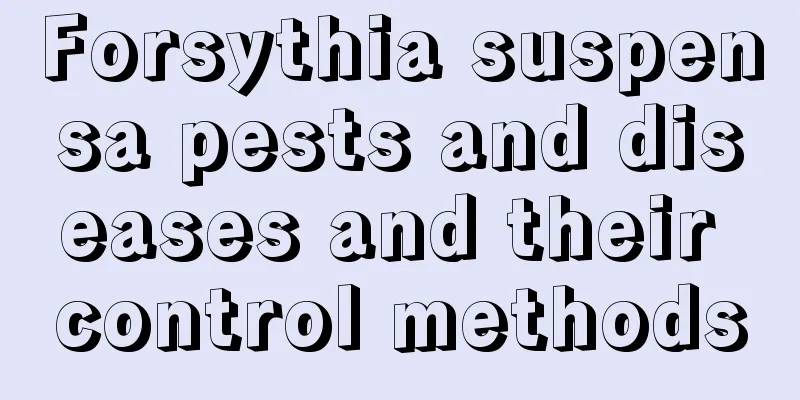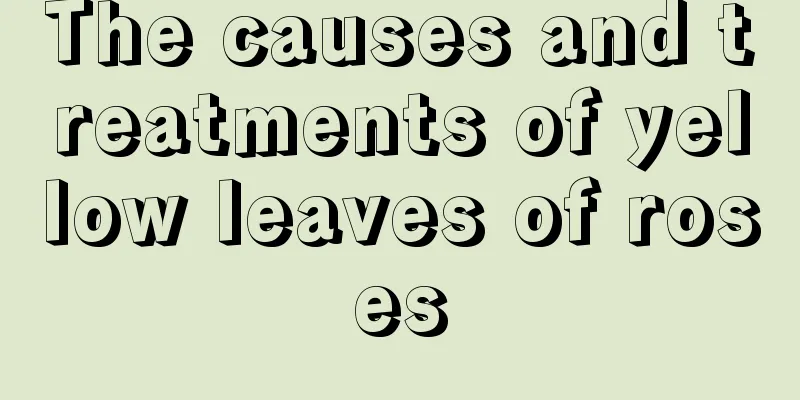Forsythia suspensa pests and diseases and their control methods

Diseases and prevention methods of Forsythia suspensaLeaf spotThe leaf spot disease of Forsythia suspensa is caused by infection by Ascomycetes. The pathogen first infects the leaf edge, and gradually spreads to the middle of the leaf as the disease progresses. In the later stage of the disease, the entire plant will die. The disease begins in mid-to-late May, with July and August being the peak months. Hot, humid weather and poor ventilation are conducive to the spread of the disease. Prevention and treatment methodsTo prevent and control leaf spot disease, you must pay attention to regular pruning of branches, thinning out redundant branches and overly dense branches, and keep the plants ventilated and light-permeable. When growing Forsythia, you should also strengthen water and fertilizer management, pay attention to nutritional balance, and avoid applying nitrogen fertilizer excessively. If Forsythia is found to have leaf spot disease, you can spray 1200 times diluted 75% Benomyl wettable granules or 800 times diluted 50% Carbendazim wettable granules for prevention and control once every 10 days. Spraying 3-4 times in a row can effectively control the disease. Pests of Forsythia and their control methodsPest typeCommon insect pests of Forsythia include the bordered wax cicada, the transparent sparse wax cicada, the mulberry white shield scale, the ivy round shield scale, the round-spotted leaf roller, the dazzling armyworm, the pine oak caterpillar, and the white-bearded velvet moth. Prevention and treatment methodsIf Forsythia is attacked by the above pests, different measures should be taken according to different pests. Spray 2000 times diluted 10% imidacloprid wettable granules or 1000 times diluted 25% chlorpyrifos suspension to kill the transparent sparse wax cicada and the marginated broad-winged wax cicada. During the peak period of nymph egg hatching, spray 400 times diluted 95% acaricide emulsion or 1000 times diluted 20% cypermethrin emulsion to kill the mulberry white shield scale. During the adult stage of the round-spotted leaf roller, spray 3000 times diluted 3% hypertonic fenoxycarb emulsifiable concentrate to kill it. During the larval stage of the fall armyworm, spray 3000 times diluted 20% Kangfuduo concentrated soluble substance to kill it. Spray 3000 times diluted 3% hypertonic fenoxycarb emulsifiable concentrate during the larval stage of pine-oak caterpillars to kill them. When the white-bearded hawk moth is causing serious damage, you can spray 1000 times diluted 1.2% nicotine to kill it. The above methods are only applicable in the early stages of insect infestation. If the plants are seriously infested with insects, they must be treated and destroyed in a timely manner to prevent the spread. |
<<: Diseases and Pests of American Mint and Their Control Methods
>>: Common Pests of Cosmos and Their Control Methods
Recommend
Is creeper a shade or sun-loving plant?
Does creeper prefer shade or sun? Ivy is a shade-...
Can sugar apple seeds be planted?
Can Custard Apple Seeds be Planted? The seeds of ...
Eggplant's growing environment and local conditions
Eggplant Growth Environment and Conditions Eggpla...
Are gourd seedlings afraid of water? Do gourd seedlings like water?
1. Gourd seedlings are not afraid of water Gourd ...
The efficacy and function of Asparagus cochinchinensis
1. Anti-cancer Asparagus contains a large amount ...
Don't throw away flowers that have withered! Learn how to revive them in minutes
Pothos The green radish cannot be exposed to the ...
How to plant Dendrobium nobile
1. Planting method 1. Division This method is usu...
What does the sunflower symbolize? What is the flowering period of the sunflower?
1. What does the sunflower symbolize? Sunflower b...
How to grow the succulent plant Star Prince
1. Breeding environment Water: Do not water the S...
When is the best time to plant honey plum?
Honey plum is a fruit that many people like to ea...
Can bamboo be hydroponically cultivated? Is hydroponics better or soil cultivation better?
Can bamboo be hydroponically cultivated? Bamboo c...
Key points for caring for hydrangea
Hydrangea likes a shady and humid environment and...
How to make acidic soil and what flowers are suitable for planting
1. How to make 1. Bury acidic humus: When making ...
How to grow and water succulents in July (how to care for succulents in summer)
The hottest months of the year are often July and...
How to grow windmill jasmine
1. Breeding conditions 1. Soil: There are no spec...









